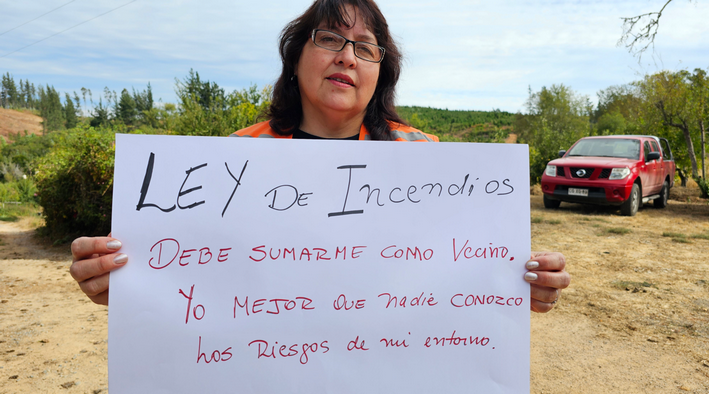- Over 5,000 citizens organized in the Community Prevention Network propose key changes in legislation to combat the root cause of wildfires.
In a unified call, residents from 92 municipalities, 16 provinces, and seven regions of the central-south macrozone of Chile, represented by 494 Committees of the Community Prevention Network, have requested members of the National Congress to include preventive measures in the discussion of the Fire Law. This network, involving more than 300,000 citizens, works voluntarily on fire prevention—a task they consider essential to reduce the incidence of these disasters, which are 99% human-caused.
The current draft of the Fire Law primarily focuses on managing fire spread, neglecting prevention. Members of the Community Prevention Network, which emerged after the devastating mega-fires of 2017, have developed a community-based management model that has proven effective in reducing fires through education and collaboration among all stakeholders in the territory.
Among the proposals submitted, key points include legal prosecution for those who cause fires, whether intentionally or through negligence, and increased resources for police investigations of these crimes. Additionally, they emphasize the importance of education as a prevention tool, urging the involvement of the Ministry of Education or another competent agency in the fight against wildfires.
Fuel management is also a central demand, calling for the involvement of all territorial stakeholders—including neighbors, businesses, and municipal authorities—in vegetation cleanup and proper management to minimize risks. They also propose constructing fire-resistant homes in rural areas and promoting infrastructure resilient to future disasters.
The Community Prevention Network calls on legislators to ensure the new Fire Law reflects a cultural shift toward prevention and the protection of human rights, aligning with the Sendai Framework for Disaster Risk Reduction, which Chile adopted in 2015.







Comments (0)
No comments yet. Be the first to comment!
Leave a comment